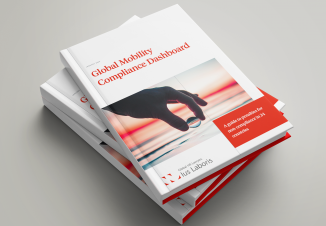
Austria: A draft law aims to reduce benefits for the parents of children resident in certain EU Member States
A draft law seeks to reduce family allowance, as well as certain tax deductions granted in Austria, for children resident in other EU Member States with a lower cost of living. Austria intends to index both benefits to the actual cost of living in the child’s country of residence. The draft is expected to be passed in the second half of 2018, despite commentators’ criticisms that it is in conflict with EU law.
Belgium: Tax authorities announce specific inspections with regard to seconded employees
At the end of April 2018, the Belgian Ministry of Finance announced it will carry out tax inspections focussing on employees seconded to Belgium for over 183 days. The authorities will use information from the Limosa application, filled in for employees working in Belgium but subject to foreign social security.
The authorities will focus on identifying seconded employees who should be taxed on their income in Belgium (based on the 183-day limit) and others who have become Belgian residents for tax purposes.
The tax inspections are part of a larger effort by the authorities to identify non-compliant employment with regard to tax, social security and labour law and are something employers should be aware of.
Czech Republic: The Czech Supreme Administrative Court rules posted workers exempt from need for work permits in certain circumstances
Workers temporarily posted to work for their employer and workers leased to work within other organisations are exempted from the need to have a work permit in the Czech Republic. This ruling supports the free movement of services within the EU. However, it only applies if the posted workers carry out their main activity in the Member State where their employer is established and do not seek to integrate into the Czech labour market. (Ruling No. 2 Azs 289/2017 of 31 January 2018.)
Denmark: Extension of specialist tax regime
The Danish specialist tax regime has been amended with effect from 1 January 2018. The regime provides a flat tax rate for a limited time and is available to certain Danish and foreign nationals working in Denmark.
Previously, employees could be liable to pay tax at a rate of 26% for five years. Now, employees covered by the regime may be liable to be taxed at a rate of 27% for up to seven years.
After adding the labour market tax of 8%, the effective tax rate will be 32.84%.
In our view, the amendments should apply to employees subject to the old rules, meaning that if the employee joined the regime on or after 2 January 2013, they should be eligible to another two years at the lower tax rate.
Italy: Entitlement to work pending processing of requests for residence permits for family reasons
Citizens requesting a residence permit for family reasons are entitled to work whilst their application is in progress. Simply providing a postal acknowledgement of their application is sufficient to prove their entitlement to work (Ministry of Labour and National Labour Inspection, Notice no. 4079 of 7 May 2018).
The Netherlands: Lower fees for several immigration categories
From 3 May 2018 lower fees apply in certain immigration categories, including the knowledge migrant residence permit and applications for recognition as a sponsor. An application for a knowledge migrant has gone down from EUR 938 to EUR 582 and an application for recognition as a sponsor has been reduced from EUR 5,345 to EUR 3,861 (or for small companies from EUR 2,672 to EUR 1,930).
The Netherlands: EU Blue Card holders who lose their jobs can now stay in the Netherlands for three months to look for another job
From 1 April 2018, EU Blue Card holders in the Netherlands are entitled to stay in the country to search for a new job for a period of three months upon termination of employment, regardless of the reason for the termination – provided their residence permit card is still valid.
New Zealand: Amendments to immigration instructions introduce changes affecting work and residence visas
Certain amendments to immigration instructions, effective 7 May 2018, make it now possible to apply for residence visas online, with supporting documents provided as electronic copies.
The amendments explain when original passports must be provided in support of online temporary entry visa applications (if the applicant is outside of New Zealand, not subject to a visa waiver, and not travelling on a People’s Republic of China passport).
The amendments also state that individuals holding a visa as a result of an order by the Immigration and Protection Tribunal are no longer entitled to an automated interim visa.
A second group of amendments, effective 21 May 2018 removes the limit on the number of Specific Purpose or Event Work visas allowed (though maximum lengths of stay have not changed) and clarifies how long English language students must study to gain part-time work rights.
Peru: Supreme Decree increasing minimum wage for employees in private sector
By a new rule dated 22 March 2018, the minimum wage was increased from PEN 850 to PEN 930.
The increase will also have an impact on family allowances and subsidies for training courses, as these are calculated by reference to the minimum wage.
Peru: Applications for migratory status are ‘personal applications’
Since 19 March, applications for migratory status are treated as personal applications, with the aim of enabling the collection of biometric data from foreign citizens at the time of their application. This falls within the ‘Policy of Administrative Simplification of the State’.
Singapore: Foreign workforce policy changes in Singapore
On 5 March 2018, the Ministry of Manpower of Singapore announced that it will be making several foreign workforce policy changes, to improve the quality and productivity of the foreign workforce.
Some of these include:


